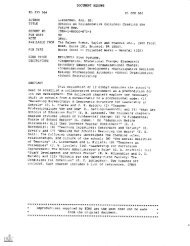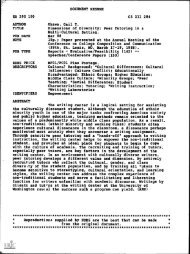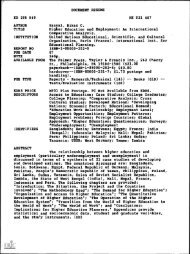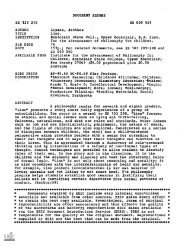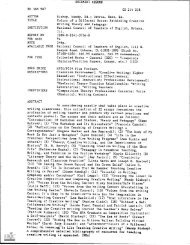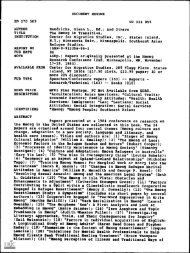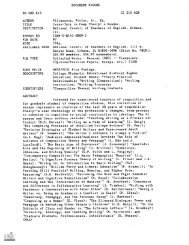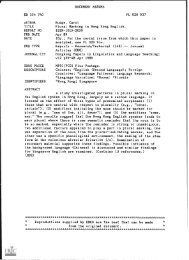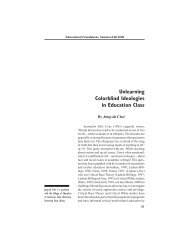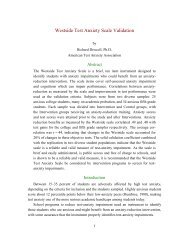Prison Literacy: Implications for Program and Assessment Policy.
Prison Literacy: Implications for Program and Assessment Policy.
Prison Literacy: Implications for Program and Assessment Policy.
You also want an ePaper? Increase the reach of your titles
YUMPU automatically turns print PDFs into web optimized ePapers that Google loves.
At the same time, prison teachers, <strong>for</strong>merly most oftenchaplains or volunteers, became professionalized (Pecht, 1983).Correctional education "emergeld) as a unique subset of theeducational profession," as seven states put education in prisonsunder the joint direction of the Department of Corrections(Coffey, 1982, p. 11) <strong>and</strong> the State Department of Education.Universities began to offer graduate programs to train correctionaleducators (Gehring & Clark, 1979).2. PUBLIC POLICY SINCE THE GREAT SOCIETYThe aftermath of the Great Society was also an important time<strong>for</strong> judicial re<strong>for</strong>m of prison education. Nevertheless, the unevendevelopment of public <strong>and</strong> legal policy regarding the incarceratedhas proceeded (in the telling phrase of the District judge, who inHolt v. Sarver would like to have ruled in favor of inmates' right torehabilitation) on the basis of the "ripening of sociology," asociology which in America is still half-green.This court knows that a sociological theory or ideamay ripen into constitutional law; many such theorieshave done so. But, this Court is not prepared to say thatsuch a rtpening has occurred as yet as far asrehabilitation is concerned.11Legal theory has evolved from an extreme of judicial harshness(the court's definition of inmates in Virginia as "slaves of thestate," [Ruffin v. Commonwealth, 1871]) to the theories of naturalrights, <strong>and</strong> to the theory of social contract; from the notion ofcivil rights entitlement, <strong>and</strong> to the judicial re<strong>for</strong>m of prisoneducation now taking the lead.12 The prevalent theory now seemsto be one of moral action premised on humanitarianism, which, ifit can make common cause with the prevalent conservative theoryof cost-effective utilitarianism, may be able to deliver education tothe prisons on the promise of civilizing inmates, causing prisons torun more smoothly, <strong>and</strong> reducing recidivism (Pierce & Mason,1976, p. ii). The emerging theory of corrections, alternativesentencing, will have even greater implications <strong>for</strong> education asmore <strong>and</strong> more adjudicated persons are monitored by the courtsoutside of traditional prisons (International Conference on PenalAbolition V, 1991). The legislative <strong>and</strong> judicial impulses of theGreat Society speeded up the "ripening of sociology" into theharvest of educational ef<strong>for</strong>ts in prisons <strong>and</strong> jails that we are nowbeginning to reap.13judicial decisions have been ambiguous, <strong>and</strong> they leave us witha collection of half-ripe inmates' rights, ranging from the promise4 021 TECHNICAL REPORT T193-1



